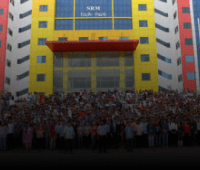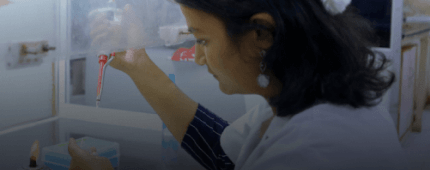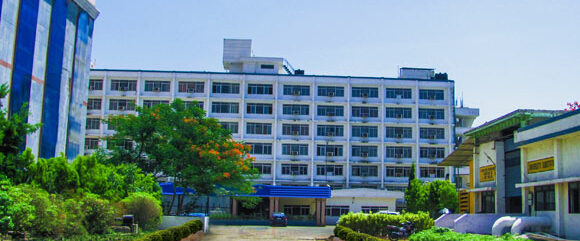HIGHLIGHTS OF THE DEPARTMENT
LABORATORY & INSTRUMENTATION
The Quality Assurance specialization guarantees that the students receive training within a GLP-compliant setting, equipping them for analytical, regulatory and quality roles within pharmaceutical and related sectors. This program is crafted to instill essential knowledge and principles concerning quality management across diverse systems employed in manufacturing. It encompasses understanding quality assessment within pharmaceutical contexts, covering cGMP, drug substance and product stability testing, statistical methods for quality assurance, hazard assessment, equipment qualification principles, quality by design, and process analytical technology. Below is a broad overview of the content typically included in a pharmaceutical quality assurance laboratory course.
Key Areas of Study
Key areas of pharmaceutical quality assurance encompass several critical aspects essential for ensuring the safety, efficacy and compliance of pharmaceutical products.
Advanced Quality Management Concepts
Application of Quality by Design (QbD) (Design-Expert 11.1.2.0) principles in developing a new drug formulation.
• Implementation of Process Analytical Technology (PAT) tools for real-time monitoring and control of the manufacturing process.
Organic Contaminants Residue Analysis by HPLC
• Utilized HPLC system, analytical column, mobile phase, standard solutions, and sample preparation materials.
• Identified the presence of organic contaminants and ensure product safety and quality.
Qualification of Pharmaceutical Equipment
• Used Autoclave, Hot Air Oven, Powder Mixer (Dry), and Tablet Compression Machine.
• Successfully qualified each piece of equipment for production.
Validation of an Analytical Method for a Drug
• Used HPLC system, analytical column, standard drug solutions, and sample preparation materials.
• Optimized HPLC parameters for the drug and validated method.
Pharmaceutical Quality Control and Validation Case Study
• Estimation of Hydrogen Sulphide in Air
• Used gas detector for Hydrogen Sulphide (H₂S) and reagents like lead acetate paper.
• Estimation of Chlorine in the Work Environment
• Chlorine gas detector and DPD reagent were used.
Sampling and Analysis of SO2 Using Colorimetric Method
Used Spectrophotometer and specific colorimetric reagents for SO₂.
Equipment Qualification
Verified installation and operational manuals, calibration certificates, and biological indicator tests.
Method and Process Validation
Validated an analytical method for a drug, demonstrating high specificity, accuracy, precision, and sensitivity.
Cleaning Validation and Instrument Qualification
Validated cleaning procedures and samples for residual contaminants.
Quality Control Checklists and Plant Layout Design
Verified compliance with GMP, storage conditions, handling practices, and sterility of equipment and materials.
Stability Studies and Process Capability Development
A stability study protocol for a new drug was developed.
Process Capability Estimation and Quality Control in Pharmaceutical Manufacturing
• Process capability analysis demonstrates consistent production of products within specified limits.
• Quality control tests and pre-formulation studies ensure products meet all quality control specifications.
Career Pathway For M.pharm (Pharmaceutical Quality Assurance)
- Regulatory Compliance and Pharmacovigilance Specialists
- Clinical Quality Assurance Auditors
- Quality Risk Management Experts
- Bioprocess Quality Assurance Specialists
- Supply Chain Quality Assurance Managers
- Quality Assurance Associate
- Quality assurance manager
- Consultancy and entrepreneurship
- Director of quality assurance in the quality management system.
Research projects and Industrial projects
The Pharmaceutical Quality Assurance Department at SRM College of Pharmacy embarked on an ambitious project involving undergraduate students pursuing a Bachelor of Pharmacy (B.Pharm). The project’s objective was to explore multiple dimensions of quality assurance within the pharmaceutical realm. The comprehensive exploration of Quality by Design, derivative methods in UV, and calorimetry empowers students with vital expertise and competencies necessary for tackling pivotal hurdles in pharmaceutical development and quality assurance. Ultimately, this equips them to contribute significantly to the delivery of quality pharmaceutical products . Over the past few years, our exploration of these models has yielded invaluable insights into the effectiveness and safety characteristics of numerous pharmaceutical compounds.
To date, our department has initiated 15 projects, each offering a unique perspective and enriching the understanding of pharmaceutical quality assurance and its practical applications. This acknowledgment not only emphasizes the importance of their research but also showcases the academic prowess and commitment within SRM College of Pharmacy’s academic sphere. The quality assurance department at SRM College of Pharmacy has been at the forefront of driving numerous impactful research initiatives conducted by M. Pharm postgraduate students. These initiatives cover a broad spectrum of areas critical to pharmaceutical quality assurance, including quality management systems, computer system validation for analytical equipment, cleaning validation, and analysis of process parameters in granulation. This diverse range of projects underscores the department’s depth of expertise and commitment to advancing the field.
Moreover, the outcomes of these endeavors have garnered recognition through publication in esteemed journals. These publications not only showcase the department’s dedication to rigorous research methodologies but also underscore its pursuit of scholarly excellence. By consistently contributing to the academic discourse in reputable journals, the quality assurance department at SRM College of Pharmacy reaffirms its position as a leader in pharmaceutical research and education.















